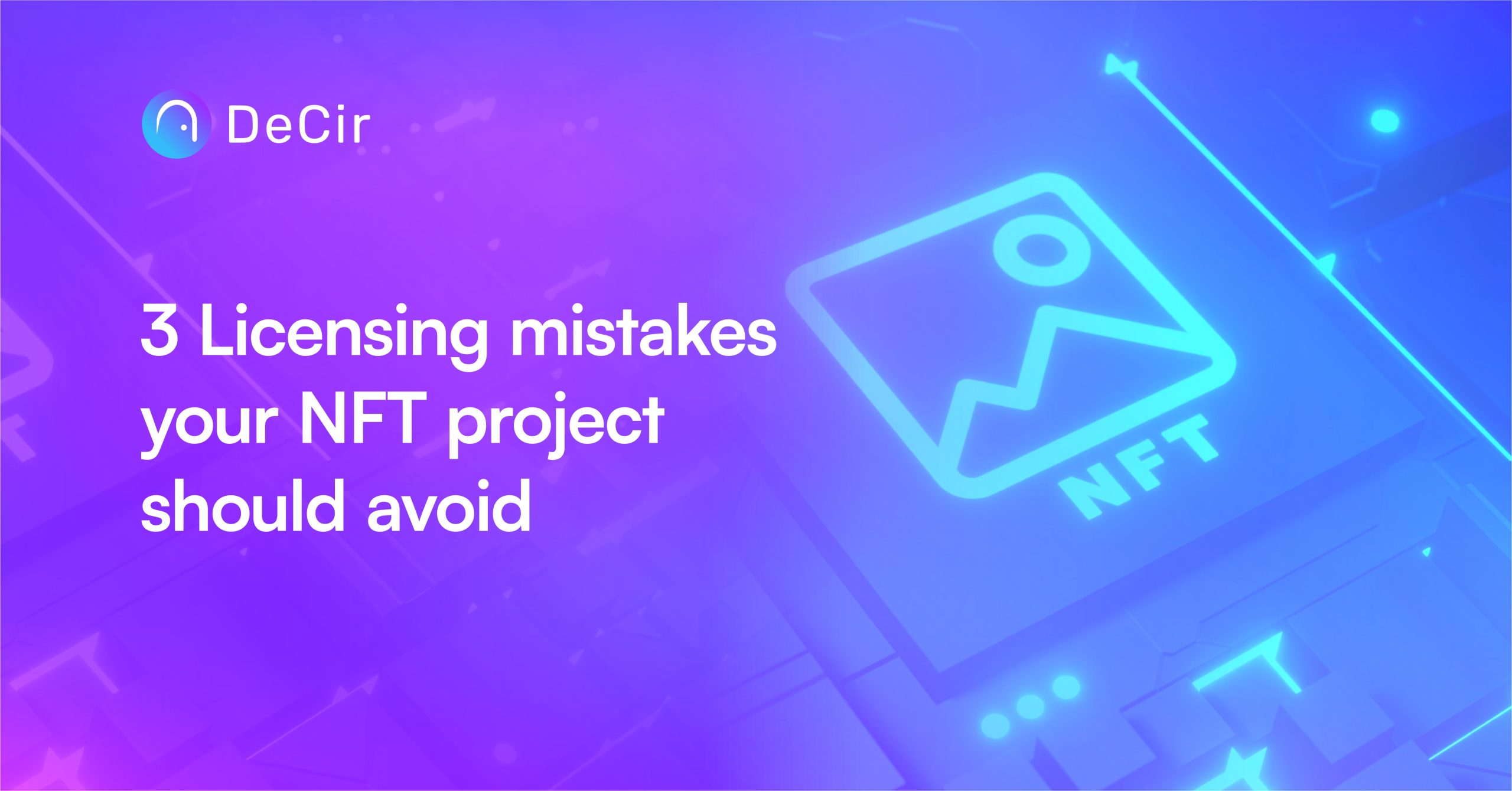NFTs have evolved from random images of apes and cats. Today, they hold valuable utilities for their holders. Also, new utilities continue to evolve as more industries continue to find innovative use cases for NFTs. In this article, we explain three common licensing mistakes that you must avoid as an NFT creator.
TL;DR
- Creators must generally define the terms that are associated with purchasing their NFTs.
- NFT licensing terms and conditions must be generally accessible to buyers and not kept in a hidden location
- NFT license must contain terms that are enforceable and do not jeopardize a buyer’s right both in the immediate and in the future.
Avoid no-license NFT
The first mistake that an NFT creator can make is not licensing their NFT. There are numerous issues that could arise from this singular act, both in the immediate and in the long term.
First, a lack of NFT licenses could lead to a wrongful interpretation of NFT sales. The lack of a pronounced NFT license can be interpreted as the sale of ownership rights and intellectual property on the part of the creator. This could have implications for future royalties and utilities.
Additionally, the lack of a license on an NFT creates a blurred line between where a creator’s right ends and where a buyer’s right begins. Creators would largely benefit from having a clearly defined licensing agreement in place for their collection or individual NFT.
Inaccessible licensing agreement
Creating a detailed NFT licensing agreement is one thing, making this licensing agreement easily accessible to buyers is another entirely. Many NFT projects are often guilty in this aspect.
Most NFT sales usually take place on dedicated marketplaces such as Opensea, Rarible, Nifty Gateway, and the like. While this is the typical Web3 approach to selling NFTs, many creators do not usually include an NFT license in the description page on these platforms.
Most times, an NFT collection agreement is located on a project’s website. Thus, making a buyer totally unaware of such an agreement in the first place. NFT creators must endeavor to avoid such mistakes in their NFT collections.
Also read: NFT Market Prediction for the next decade
Unenforceable NFT licensing agreement
Enforcement could still prove an issue for NFT projects even when they have a licensing agreement in place. Enforcement generally implies the availability of a mechanism for checks to prevent usage for undesignated purposes.
NFT licensing and usage have become vital in recent times. This is due to the commercialization of NFT by top brands. For this reason, it is important that NFT projects define the purpose for which buyers can use an NFT.
Projects must generally impose restrictions on NFT usage in instances of hate, violence, and cruelty. This is important in order to preserve the image and identity of the issuing NFT project. This is especially important due to the decentralized nature of web3.
However, agreements that include terms such as social media usage, and other similar terms, are generally considered unenforceable. Additionally, projects could retain administrative rights over collection smart contracts. This could be used to revoke ownership in the event that such NFT is used in a manner that is considered inappropriate.
Interesting piece: Why your NFT project should have a DAO
Conclusion
The bottom line here is that NFT projects must be mindful of the licensing agreements they include in their NFT collections. This is needed to avoid future issues that might arise with the collector(s).


